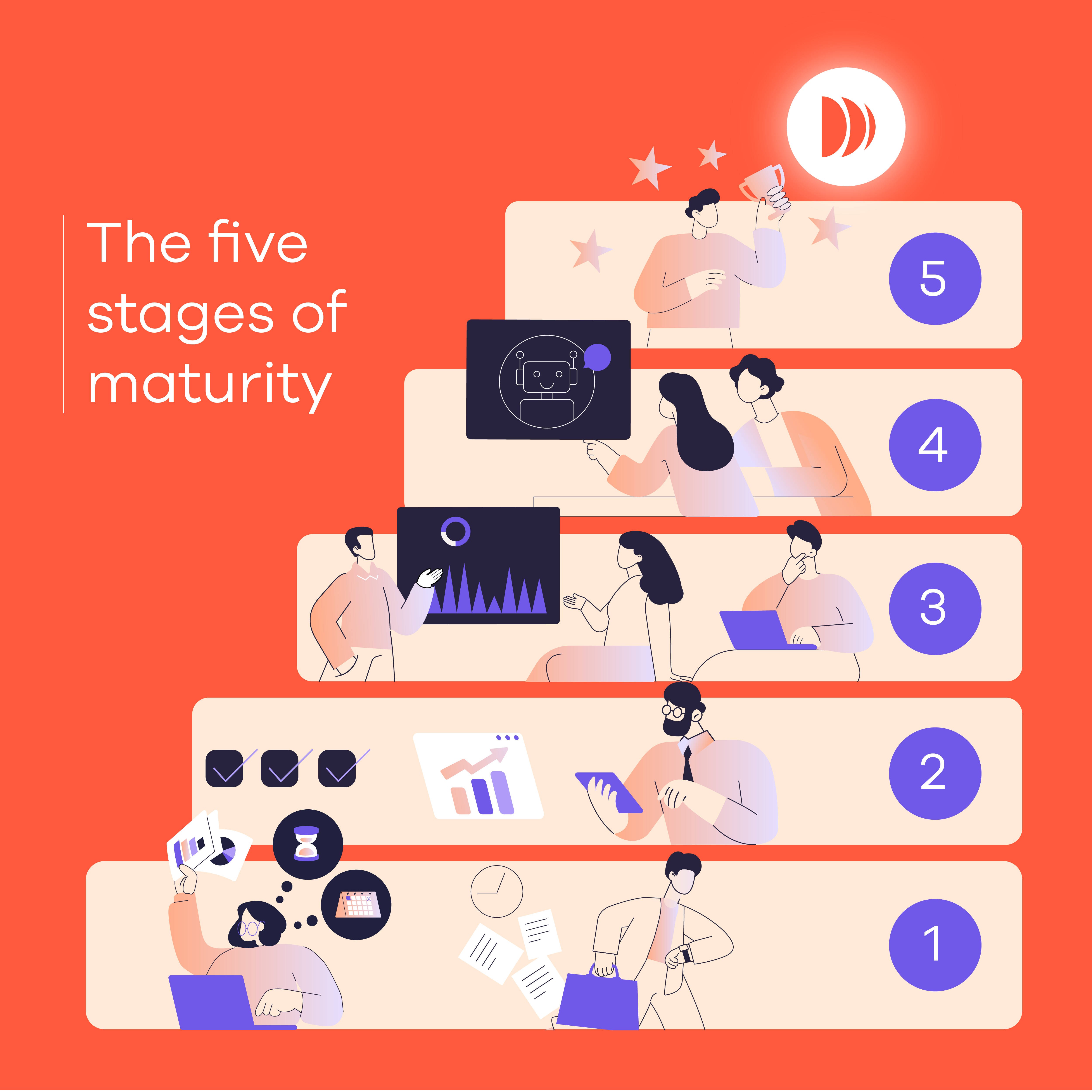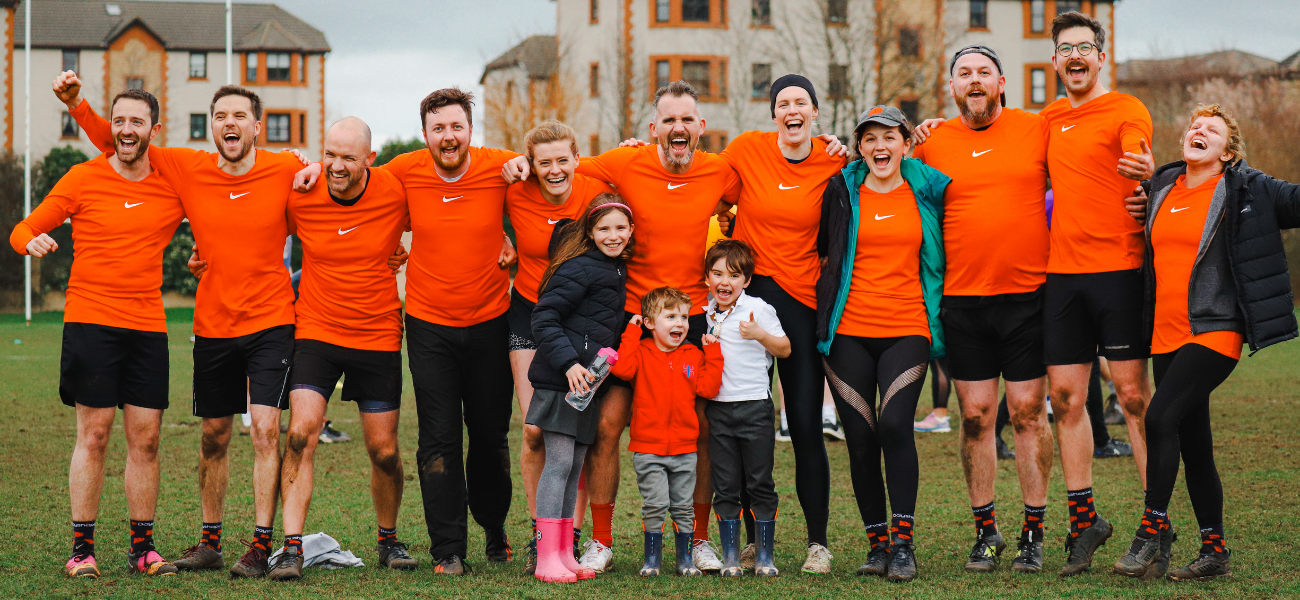Request a Dayshape demo
Get in touch and learn first-hand how Dayshape can help boost profitability, improve client service, and keep your teams happy.
Platform
Strategic resource management
Optimize margins. Grow revenue.
Plan reliably. Act confidently.
Inspire teams. Delight clients.
Enterprise scalability
Use Cases
How Dayshape helps firms
10 ways for resource managers to elevate their impact

Elevate your role, expand your influence, and drive impact across your firm.
Listen nowCustomer Success
Value at every stage
Company
More about Dayshape
Resources
Learn more
Resources
Featured resources
Resource Management Maturity

The complete blueprint to transform your resource management.
Learn moreFirst of all - why am I writing this? The truth is simple - I've two daughters, aged 13 and 10, and the older is starting to think about career options and frequently asks questions about mine. This has made me review how I got to where I am in my career, and has highlighted some nuggets of wisdom I've learned as a woman in the typically male-dominated industry of IT.
So, let's jump back to 3rd year at secondary school where it all began—the year that Standard Grade Computing was introduced as a new subject on our curriculum. I was instantly intrigued but with only nine BBC Micros (and hence places) available, I knew gaining entry could be difficult. Thankfully, after prerequisite tests in maths and physics, I was one of the nine chosen. However, it wasn't until the classes began that I noticed the only other woman in the class was my teacher, Mrs Shanks.
Roll forward to the larger pool of university, and there were still very few women on my course and thinking back, all of the lecturers were men as far as I can remember. Saying that, I didn't think much of it at the time, we were all just a bunch of geeks who liked programming. Gender didn't really come into it.
It wasn't until after university, when I joined the corporate world of IT that I truly understood why recognizing and supporting woman in IT is important.
That said, for the vast majority of my first years in the IT industry, I recoiled from the idea of joining Women in IT support groups. I didn't see the need for them, and I wasn't a fan of what was then called, "positive discrimination". Instead, I wanted to be rewarded based on my own technical merits—as had been recognized throughout my school and university years. However, I'd soon learn what a mistake that was.
Ironically, despite my dislike of positive discrimination, I faced discrimination within the workplace. Unlike in education, where all students, regardless of gender, are on an equal playing field with the same access to opportunities, the corporate world introduces power dynamics which can cause conscious or unconscious bias from those with authority. For example, being the only woman in a technical department meant I was always the one asked by superiors to take minutes, buy baby gifts for colleagues' newborns, and make restaurant bookings for team events. While it really annoyed me at the time, as it restricted my capacity for other more relevant work, I just got on with it as I didn't want to come across as difficult. Although on reflection this only perpetuated the discrimination as I didn't challenge it.
Later, I moved into the business operations side of the IT industry. It was still dominated by men with lots of testosterone and large egos in the department, but crucially I had a great male manager who saw my potential and gave me opportunities I hadn't previously had. In addition, I started to do a lot of networking in that role without realizing it and so made a lot of contacts which later became useful.
Ahead of my second maternity leave, I specifically sought out a female mentor from my new-found contacts to support me through maternity and my return to work. Although my return to work wasn't a great experience and had a very negative impact on me, my female mentor was invaluable (thanks HB) and notably a couple of senior colleagues also reached out to pull me through this rough time.
Then, thanks to networking, a contact offered me a role on their account and another seven to eight years of career opportunities followed, along with a promotion, a real dislike of sales targets, and a few more challenging times - although they all taught me something.
For instance, although this was another period of predominantly male colleagues, I met a handful of strong women in the business who became regular contacts and sounding boards. We all supported each other, learned from our experiences and mistakes, and ultimately looked out for one another. This was the first period in my career where I had a supportive group of women that I could rely on, and I realized the importance of it.
As a woman in IT, I bring the same technical skills as my male colleagues but as a woman with almost three decades of career experience alongside bringing up kids in the last decade (and all the juggling that involves), I can bring so much more.
I can prioritize, I can see what's urgent and what's important (not always the same), I can coach and mentor colleagues early in their career, and I can support peers with my varied career experience from programming, business operations, human resources, employee relations, and account management. Plus, I've been through life changes from maternity to menopause.
As a woman in this industry, there's so much more to bring than my technical experience and recognizing that is empowering. It's easy to forget how much we learn over the years but if we were to look back and reflect, I'm sure our CVs would be overflowing with wonderful achievements.
I now find myself for the last 18 months at Dayshape, a rapidly scaling software company, putting all my experience to use and having opportunities to impact different areas of the business. That's certainly the perk of a scale-up—you have a job role/title but in reality, you can pitch in anywhere you think you can help out. That keeps me interested and keeps the days varied. Even when I was getting up to speed with the product, I was able to add value to the company from my first day with all my years of experience.

Family-friendly team events at Dayshape
Interestingly as I write this, I have a female manager (who I know from my earlier career), and in our team we have an almost equal mix of genders. While I'm still not a fan of positive discrimination, I absolutely see the benefit of nurturing women and the unique perspective they can bring to the workplace.
For example, I recently started mentoring the first of my Dayshape colleagues to take maternity leave. I'm enjoying being able to mentor someone and I have reliable feedback that the feeling is mutual! Mentoring is a great way to give back and for many reasons, we could all do with a bit of mentoring now and again. Hence why we're planning to start a mentoring hub for any occasion, giving people the chance to seek out a mentor and for people to offer their services to a mentee. Offerings like these are a great sign of the supportive community that has been built at Dayshape.
Our company tries its best to be diverse, inclusive, and open. We're encouraged to bring our whole selves to work, whatever that may entail, and there are even a couple of family-friendly events throughout the year. I now have no guilt popping out to a school meeting or finishing on time to make dinner when it's my turn to cook. Inevitably, my experience has got me to this empowered stage and all that experience is here to be shared. Do feel free to ask and I'll give you the warts-and-all view, what to look out for, and how to say, "No" when you need to. Or, alternatively, I can provide a listening ear if you have something to share with me.
So, if you're a woman in IT or a woman considering a career in IT, here are my takeaways:
My next challenge? Trying to get my teenage daughter to listen to my advice!
Get the latest insights and updates delivered to your inbox weekly.
Explore our latest insights and strategies for success.

5 min read

4 min read

Discover how AI can transform your resource management and enhance your project delivery.

Get in touch and learn first-hand how Dayshape can help boost profitability, improve client service, and keep your teams happy.
